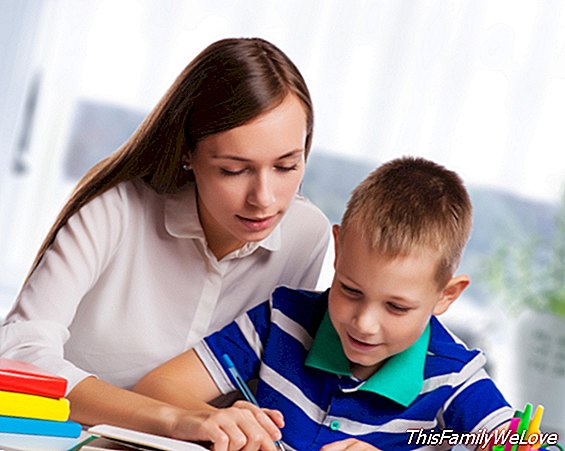CEAPA asks for the elimination of school duties
The school homeworkthey are a topic when talking about the children's school. Homework is and will be an object of debate about its usefulness. In particular, the Confederation of Associations of Parents of Students, CEAPA, asks for the elimination of school duties. This body, which is made up of about 12,000 groups of parents of public schools, understands that homework can not become an extension of school hours within the home, as it currently occurs.
What does the WHO say about homework?
The debate about whether the school homework really help to internalize the knowledge that the student learns in school or on the contrary are obsolete that only contributes to increase the burden of school is more alive than ever. In fact, the WHO recently warned in this regard to present a study stating that the volume of duties in children is excessive and more than 120,000 people have asked for the rationalization of duties in Spain through the Change.org platform.
In the study presented by this organization, I drew attention to the fact that at an age as young as 11 years 34% of children and 25% of girls with Spanish nationality already claim to feel pressure for homework. These percentages increase as school age increases. Given these data, several voices critical of the tasks have arisen and question their usefulness.
Arguments against schoolwork, according to CEAPA
There are several arguments that CEAPA proposes to put an end to homework.
1. Duties represent the failure of the education system
It is especially striking that, in the opinion of this organization, the extracurricular tasks are a clear example of how the education system has failed. In this sense they add that the teaching that the students find in the classrooms is not very motivating.
2. Duties reveal a lack of work at school
They also state that the tasks come to cover a lack of work that should occur in the school while the teaching work is not efficiently carried out in the classrooms. Given this fact, the educational system "throws balls out" by commissioning too many homework assignments, tasks that are intended to cover this lack of work in the classroom.
3. Duties cause social inequalities
CEAPA also affirms that the duties cause social inequalities since in many occasions the fulfillment happens to point the minor to an academy; something that not all families can access because of their economic level. This organism adds that this aspect becomes especially serious if one takes into account that duties often represent an important part of the qualifications.
Other arguments against schoolwork

This organization adds other arguments in its criticism of duties as the tension that is created between parents and children. The lack of time that schoolchildren have for leisure because of homework causes a rejection of parents who force their children to do them. In this sense, CEAPA adds that the time that homework is taken prevents minors from carrying out other beneficial activities for their training, such as being able to practice sports or attend cultural events.
CEAPA has sent this criticism of the duties to the Government in office through a letter to the Minister of Education, Íñigo Méndez de Vigo. In it, this organism exposes its position in which they affirm that the duties only serve to memorize contents that will quickly be forgotten and that will not be internalized. This writing ends with the tagline "although the LOMCE legalize the duties, we discourage them."
The position of the education system in front of the school's duties
Faced with these criticisms, the institutions have responded with their arguments about why it is important to maintain the duties as part of the education within the classrooms. Specifically, the Junta de Andalucía has made a letter to publicize its position. This document supports the tasks since in their opinion they are an effective mechanism to help internalize the contents learned in the classrooms and also encourage the autonomy of the students.
In this writing the Board states that it understands the position of some parents critical of the tasks, so it states that it is necessary to find a balance since these criticisms have their part of reason. Specifically, this writing is committed to finding new formats for duties that run away from mechanical and routine methods that do not collaborate when it comes to supporting the autonomy of minors.
It is also stated that Parents have a role in this matter because they can help their children feel overwhelmed by homework. In this way it is suggested that parents can collaborate by sharing this review time and supervising the results of these tasks.At the same time, it is recommended to establish methods of work within the home that reduce the pressure of children, practices such as fixing breaks and encourage children to devote some time of the day, however brief it may be so as not to accumulate an excessive volume of work.
Damián Montero




